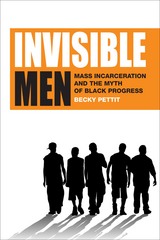7 start with I start with I

Constructing a new vocabulary with which to understand contemporary society, Curtis examines 'idiotism' across the spheres of economics, politics and culture, drawing on the philosophy and political theories of Martin Heidegger, Louis Althusser, Franco Berardi, Jacques Rancière and Cornelius Castoriadis.
Idiotism recasts our conception of the new neoliberal 'common sense', presenting it as not simply a case of false consciousness, but an ontological problem related to our being-in-the-world.



The untold history of how America’s student-loan program turned the pursuit of higher education into a pathway to poverty.
It didn’t always take thirty years to pay off the cost of a bachelor’s degree. Elizabeth Tandy Shermer untangles the history that brought us here and discovers that the story of skyrocketing college debt is not merely one of good intentions gone wrong. In fact, the federal student loan program was never supposed to make college affordable.
The earliest federal proposals for college affordability sought to replace tuition with taxpayer funding of institutions. But Southern whites feared that lower costs would undermine segregation, Catholic colleges objected to state support of secular institutions, professors worried that federal dollars would come with regulations hindering academic freedom, and elite-university presidents recoiled at the idea of mass higher education. Cold War congressional fights eventually made access more important than affordability. Rather than freeing colleges from their dependence on tuition, the government created a loan instrument that made college accessible in the short term but even costlier in the long term by charging an interest penalty only to needy students. In the mid-1960s, as bankers wavered over the prospect of uncollected debt, Congress backstopped the loans, provoking runaway inflation in college tuition and resulting in immense lender profits.
Today 45 million Americans owe more than $1.5 trillion in college debt, with the burdens falling disproportionately on borrowers of color, particularly women. Reformers, meanwhile, have been frustrated by colleges and lenders too rich and powerful to contain. Indentured Students makes clear that these are not unforeseen consequences. The federal student loan system is working as designed.

Inked is a social history of common soldiers of the Song Dynasty, most of whom would have been recognized by their tattooed bodies. Overlooked in the historical record, tattoos were an indelible aspect of the Song world, and their ubiquity was tied to the rise of the penal–military complex, a vast system for social control, warfare, and labor.
Although much has been written about the institutional, strategic, and political aspects of the history of the Song and its military, this book is a first-of-its-kind investigation into the lives of the people who fought for the state. Elad Alyagon examines the army as a meeting place between marginalized social groups and elites. In the process, he shows the military to be a space where a new criminalized lower class was molded in a constant struggle between common soldiers and the agents of the Song state. For the millions of people caught in the orbit of this system—the tattooed soldiers, their families, and their neighbors—the Song period was no age of benevolence, but one of servitude, violence, and resistance. Inked is their story.

As the glittering skyline in Shanghai seemingly attests, China has quickly transformed itself from a place of stark poverty into a modern, urban, technologically savvy economic powerhouse. But as Scott Rozelle and Natalie Hell show in Invisible China, the truth is much more complicated and might be a serious cause for concern.
China’s growth has relied heavily on unskilled labor. Most of the workers who have fueled the country’s rise come from rural villages and have never been to high school. While this national growth strategy has been effective for three decades, the unskilled wage rate is finally rising, inducing companies inside China to automate at an unprecedented rate and triggering an exodus of companies seeking cheaper labor in other countries. Ten years ago, almost every product for sale in an American Walmart was made in China. Today, that is no longer the case. With the changing demand for labor, China seems to have no good back-up plan. For all of its investment in physical infrastructure, for decades China failed to invest enough in its people. Recent progress may come too late. Drawing on extensive surveys on the ground in China, Rozelle and Hell reveal that while China may be the second-largest economy in the world, its labor force has one of the lowest levels of education of any comparable country. Over half of China’s population—as well as a vast majority of its children—are from rural areas. Their low levels of basic education may leave many unable to find work in the formal workplace as China’s economy changes and manufacturing jobs move elsewhere.
In Invisible China, Rozelle and Hell speak not only to an urgent humanitarian concern but also a potential economic crisis that could upend economies and foreign relations around the globe. If too many are left structurally unemployable, the implications both inside and outside of China could be serious. Understanding the situation in China today is essential if we are to avoid a potential crisis of international proportions. This book is an urgent and timely call to action that should be read by economists, policymakers, the business community, and general readers alike.

READERS
Browse our collection.
PUBLISHERS
See BiblioVault's publisher services.
STUDENT SERVICES
Files for college accessibility offices.
UChicago Accessibility Resources
home | accessibility | search | about | contact us
BiblioVault ® 2001 - 2024
The University of Chicago Press









